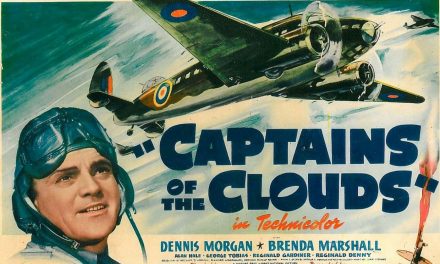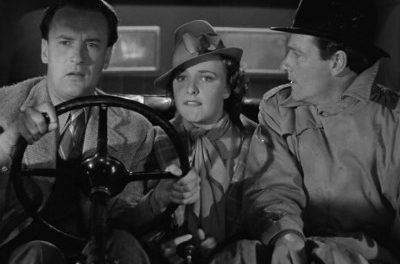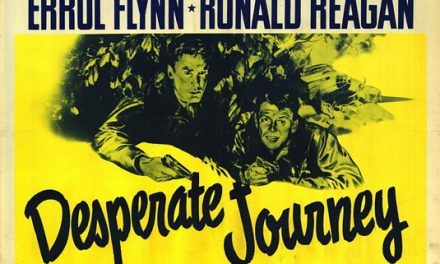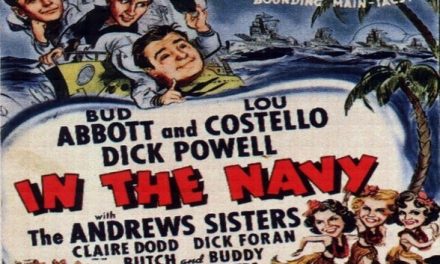The British-American military forces have ended the year with a bang in their recent invasion of North Africa and so have Warner Bros. in their latest war-romance picture “Casablanca,” directed by Michael Curtiz and starring Humphrey Bogart, Ingrid Bergman, and Paul Henreid.
Set in Vichy-French Morocco in December of last year, the film’s namesake is a transitional location and the key to freedom for refugees from Europe, the Middle East, and Asia. Combine this with the hot climate and busy Moroccan streets, and the atmosphere is filled with tension and desperation. The only goal is to be on the first flight to Lisbon, in neutral Portugal, and for many, on to the United States. The unifying locale for many refugees is Rick’s Café Américain owned by Rick Blaine (Bogart). Under the guise of a regular establishment, Rick’s is one of many breeding grounds for illegal activity. There’s gambling, intrigue, and the buying and selling of letters of transit (the document required to leave Morocco). With the backdrop of live music, drinks, and cigar smoke, it all seems very exciting.
Rick is an American expatriate with a complex past and a cynical personality (much like Bogart’s “Maltese Falcon” character Sam Spade) who is only interested in running his business. He has a history of fighting in wars on the side of the underdog – for example, on the Loyalist side in the Spanish Civil War. But this time around, Rick is not concerned with possible victors in the current war, politics, or “sticking his neck out” for anybody. It is not clear why he’s in Casablanca in the first place but it is certain that he doesn’t plan on leaving anytime soon.
One evening, one of his friends, Signor Ugarte (played by Peter Lorre), is arrested for murdering German couriers and stealing their letters of transit to exit the country. This event creates a domino effect of complications for Rick’s once simple world of making money and letting some of his associates win at roulette. Word from the corrupt French police officer Captain Renault (Claude Rains), another of Blaine’s friends, is that the infamous Victor Laszlo (Paul Henreid), a leader in the underground movement from Czechoslovakia, has arrived in Morocco. He’s brought his wife, Ilsa Lund, and she just happens to be Rick’s ex-lover from pre-occupation France.
Viewers are immediately enraptured by the lives of these three lead characters whose destinies suddenly become intertwined. The story encompasses an interesting love triangle and is not as warlike or tactical as a typical war film. The war and its nuances, instead, serve as the major driving force behind the storyline, its subplots, and characters’ motives. Ultimately, Rick is confronted with the decision of whether to follow his own selfish ambitions to spite his long-lost love or push aside his feelings and contribute to a greater purpose.
All of the “Casablanca” cast delivers first-rate performances, but the standout is Warner Bros.’ exciting new star, Paul Henreid (also cast in “Now, Voyager” earlier this year), who plays the courageous Czech leader. His character exudes quiet strength and patriotism that pervades the film. One notable example is when he leads the café’s inhabitants in singing “La Marseillaise”, the French national anthem, which was filled with tears, pride, and is sure to tug at the deepest heartstrings of an observer. This is in rebellion to Major Heinrich Strasser (Conrad Veidt) of the Third Reich and the rest of the Nazi soldiers that frequent Rick’s.
Bergman’s performance as Ilsa Lund is spirited as well. Her acting brings feeling, passion, and determination to her role that is sure to captivate audiences like she captivated many in the film. Humphrey Bogart’s performance was familiar to some of his previous hard-boiled characters, but the occasional romantic and sentimental aspects of Rick undoubtedly expanded his on-screen identity.
The supporting characters act as the glue to piece “Casablanca” together. Dooley Wilson, playing Sam, is the café’s pianist and a close friend of Rick’s. Not only was he there when Rick and Ilsa’s romance was flourishing a few years prior, but he was also there when Rick hit rock bottom at the sight of his former love with a new man. His ballad “As Time Goes By” weaves throughout the film and sets the tone for the entire film. Claude Rains as the French officer gives much humor and color to the picture as his character contradicts himself often and wavers with the wind. Conrad Veidt is utterly believable as the Nazi officer as his character’s hunger for domination contrasts with many of the characters’ hunger for a Nazi-free existence.
What is so interesting about this film is its political undertones behind the romantic dilemmas. Call it Allied propaganda or patriotically themed, the characters and their motives seem to parallel real life. Rick represents pre-Pearl Harbor American attitudes towards the war, when the nation chose to adopt a policy of isolationism and refrain from involvement in the world’s problems. Captain Renault signifies the complex political situation concerning Vichy France and independent France; there is no telling where his loyalties lie given the circumstances. Major Strasser embodies Nazi Germany with his superiority complex and desire for power, while Victor Laszlo characterizes the determined population of the real underground movement in a fight for freedom from Nazi oppression.
Overall, the film is paced well through war-referencing dialogue and gradual character development. The cinematography is high budget and enhances the narrative. It provides a unique take on society at war and doesn’t fail to hit close to home considering recent events. But it also gives that usual Hollywood flavor that many have already fallen in love with. “Casablanca” is sure to attract romance and noir fans as well as longtime supporters of the actors and lovers of war films. Axis moviegoers, on the other hand, are sure to loathe it. Perhaps that’s what the writers were aiming for.





